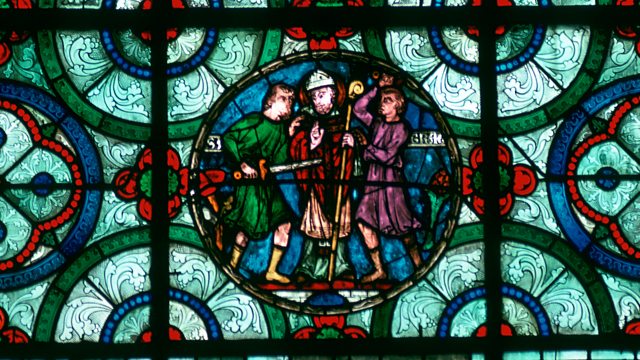Thomas Becket and the rift between church and state
From the assassination of Thomas Becket in the 12th century to the battleground of French secularism today - Laura Ashe, Christopher de Hamel and Andrew Hussey with Andrew Marr.
As the 850th anniversary of the murder of Thomas Becket approaches Andrew Marr explores the dynamic between church and state and what happens when the most powerful political friendships turn sour.
The academic Laura Ashe explains the background to the murder in the cathedral on 29th December 1170. King Henry II had promoted the lowly born Thomas Becket to the highest positions in the land – first Lord Chancellor, then Archbishop of Canterbury. But their growing animosity and conflict over the rights and privileges of the church led to his infamous assassination by four of the King’s knights.
In recent years the former librarian Christopher de Hamel has succeeded in identifying the Anglo-Saxon Psalter which Becket cherished in his lifetime and may even have been holding when he died. In The Book in the Cathedral: The Last Relic of Thomas Becket, de Hamel looks at what this book reveals about the life of Becket. He also compares the veneration for relics of the saints in the Middle Ages, with our relationship today with historical artefacts.
In Britain the Anglican Church still has an establishment role within the state, with Bishops in the House of Lords and the monarch regarded as ‘defender of the faith’. But across the Channel in France a formal separation of church and state, laïcité, was enshrined in French law in 1905. The cultural historian Andrew Hussey, who is based in Paris, looks at the devastating fault lines that have emerged in 2020 in the country’s secularist ideals.
Producer: Katy Hickman
Last on
More episodes
Broadcasts
- Mon 21 Dec 2020 09:00����ý Radio 4
- Mon 21 Dec 2020 21:30����ý Radio 4
Podcast
-
![]()
Start the Week
Weekly discussion programme, setting the cultural agenda every Monday


